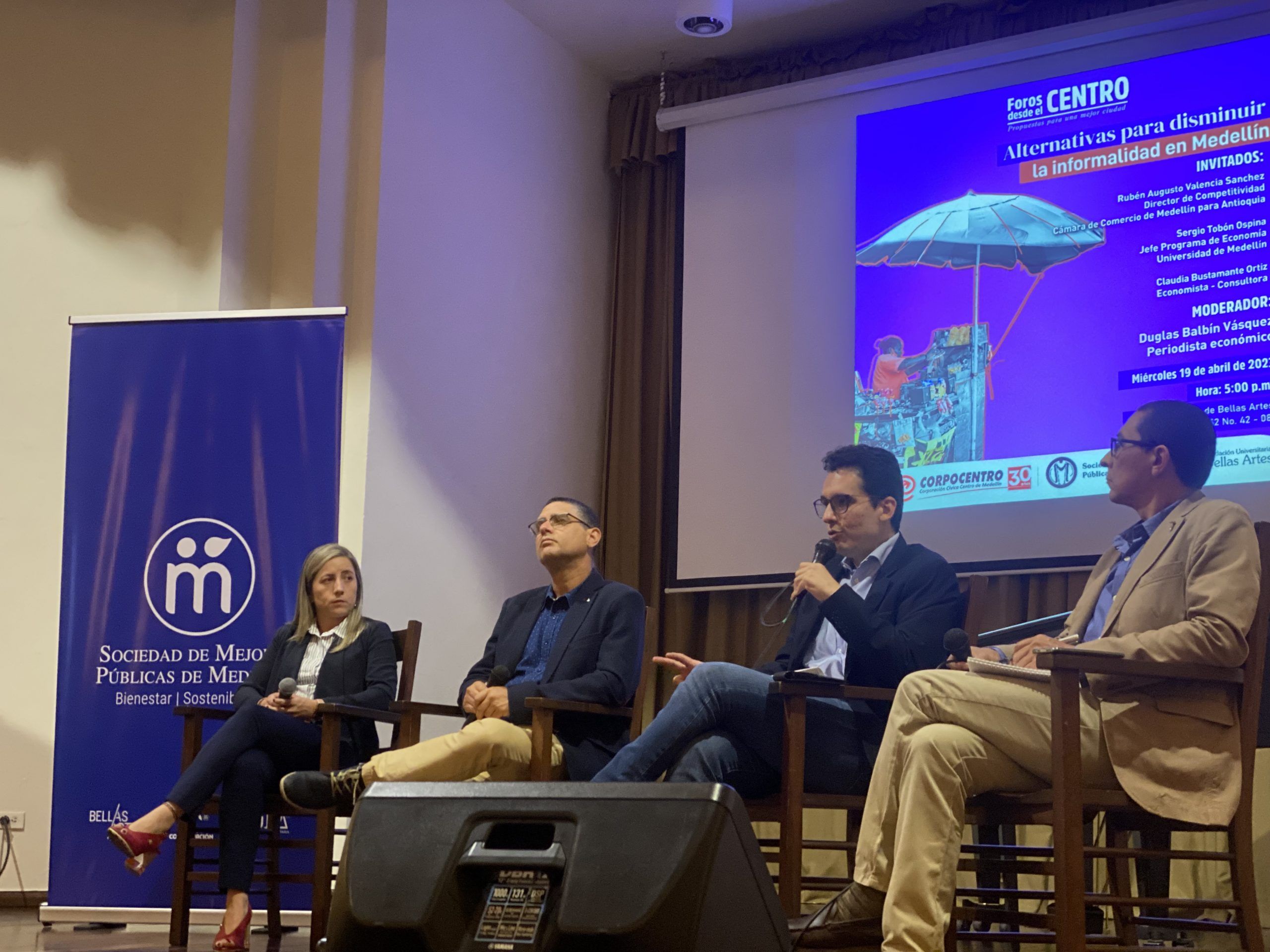By: Tatiana Balvin
Informality has increased 100% in Medellín, a phenomenon that already affects mobility, public space and also the sales of formal businesses. The city went from having 17,000 informal innkeepers in 2017 to 35,000 in 2022, a figure that worries academics, consultants and businessmen.
Although Medellín is one of the cities with the lowest percentage of informality according to the latest Dane survey, which noted that of the 1.77 million employed people in the city, 710,000 were informal (40%), while 1.06 million were formal workers (60%), the statistics continue to be worrying due to the vulnerability of those who work in this way.
However, there are alternatives to reduce it and academics, leaders and businessmen who have studied the subject agree that informal work is one that does not have access to a social protection network, in terms of health, compensation and approach to certain routes that allow you to receive benefits.
“The minimum wage is very close to average consumption, which makes the vicious circle repeat itself. That is why we need to include national public policies that want to deal with the problem because local ones are very limited,” says Sergio Tobón Ospina, head of the Economics Program at the University of Medellín, who adds that informality is very dangerous since 78% of the people who are in it live in a situation of poverty and have no way of getting out of it.
The academic adds that it is necessary to have incentives that lead to greater formality and benefits for companies that generate employment. The union leader Rubén Augusto Valencia Sánchez, director of Competitiveness of the Medellín Chamber of Commerce for Antioquia, also agrees on this, adding that not all those who are in the informal sector are experiencing economic hardships. “When a society doesn’t offer enough jobs, people have to survive somehow and they start transporting people, or eating meals outside the house and never see the need to formalize. What is there to do? generate programs that explain the benefits to those people”, reaffirms Valencia.
The phenomenon is a challenge for the entire country, Colombia is the last in the list of informality of the OECD, with 73.3% of informality, the majority located in the agriculture and commerce sectors.
“It is not just a matter of cities, in the rural sector you see a lot of informality as they are not technified. People work for a daily wage and never have access to the benefit issue, this is a focus to attack and this is done with pedagogy, just as it has to be done in cities”, says Claudia Bustamante Ortiz, economist and consultant.
The experts agreed on the Forum: Alternatives to reduce informality in Medellín, organized by Corpocentro, that due to the lack of information on the benefits of formality, there is a deficit of employees in the factories and shops in Medellín, which is being an impediment in the search for further development.
“82% of the informal sector is made up of people who have up to elementary school and after the pandemic the dynamics have changed, there are more and more people who want to manage their time, that is why in the formal sector you also have to be flexible,” says Bustamante Ortíz la expert consultant in economic issues.
One of the most affected sectors is textiles: “they can’t find workers and they stop producing and exporting because they don’t have anyone, the same thing happens with the metal-mechanic sector. What you have to do is generate incentives so that workers can be formal. We seem to be in two countries, one where people prefer to be unemployed and receive a subsidy and another in which companies do not have employees and stop producing,” adds the union leader of the Medellín Chamber of Commerce for Antioquia.
It may also interest you: You can now pay with QR in Regulated Parking Zones in Medellín
